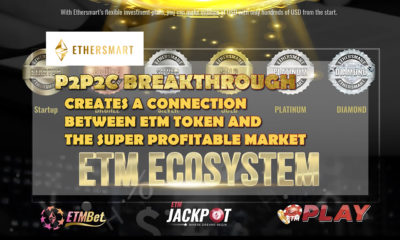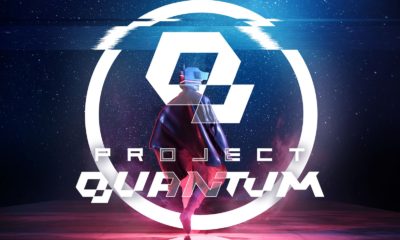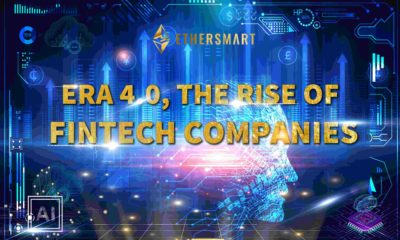Blockchain technologies are developing very actively. In recent years, the community has developed and refined the idea of decentralized information networks. However, in this industry there are still a lot of opportunities and directions for the development and implementation of new ideas.
One such idea is the use of artificial intelligence. AI technologies, as well as virtual reality and quantum computing are the three most promising trends in the further technological evolution of our world. The development and use of these technologies will be able to open up previously unavailable opportunities for humanity. Therefore, the luminaries of blockchain, which is also the most advanced technology in the world of information and finance, cannot afford to ignore these promising directions.
The most popular and useful technology that can significantly improve the potential of the blockchain at the moment is artificial intelligence. And while many projects are calculating and planning ways to use AI in Blockchain, Libonomy has managed to create a successful symbiosis of these two ideas.
Libonomy is being developed as a framework for building any blockchain application. The team is led by three Swedish entrepreneurs – Richard Haverinen (CEO), Fredrik Johansson and Therese Johansson. With shared ideology in their minds, together they have spent the second half of last decade accumulating knowledge about decentralized technology and building an intelligent team around them.
The new ecosystem will provide access to tools that will allow you to launch smart contracts in one click, create multi-currency wallets, launch DAPPs and DEXs, and also interact with various blockchains using interoperable technologies from Libonomy. A number of the main advantages of the new blockchain provide precisely the use of artificial intelligence for many important aspects of the functioning of the network. Among them:
- Security and protection from hacker interference
- Optimization and versatility for different tasks
- Decision-making autonomy and scalability.
Below we will describe each use case for AI in the Libonomy blockchain in more detail.
AI and blockchain security
It’s no secret that blockchain networks have become the # 1 target for hackers. The fact is that gaining control over a decentralized network allows you to get cryptocurrencies or data from users’ wallets, which are essentially the same thing. This is why blockchain developers must prioritize the security and protection of their networks.
In order to protect itself from external interference, the Libonomy team decided to take an alternative path: instead of writing scripted scenarios for the network during an attack, the developers taught the network to defend itself on its own, constantly adapting to new hacking methods. This is where artificial intelligence came in handy, thanks to which Libonomy is constantly looking for vulnerabilities in its blockchain, fixing them and learning to prevent hacker attacks.
AI and blockchain versatility
Each blockchain was created for specific purposes. For example, Ethereum works great as a platform for startups or for launching smart contracts. Tron is good at speed and low cost of transactions, and Bitcoin still brings good profit to miners thanks to its network consensus protocol.
But what about a person who needs to combine various advantages in a project? Is it really necessary to create a new blockchain from scratch? To solve this problem, the Libonomy developers integrated the AI engine into the blockchain. Now, depending on the use cases, the self-learning system will regulate many network parameters, up to block size and throughput. And all this is completely autonomous.
AI and blockchain autonomy
Currently existing blockchains cannot work autonomously. This means that every decision, every action must be pre-foreseen and programmed. This significantly limits the potential of the technology, allowing it to function only under the conditions provided by the developers. But Libonomy has a different approach to this issue:
“We are enabling blockchain to make autonomous decisions in terms of distributing resources, upgrading and ensuring security on the basis of analyzing the system. That means that the system can live on it’s own without a need of constant monitoring” — the project team comments on the results of the introduction of AI into the blockchain.
Thus, as you can see, the integration and mutually beneficial symbiosis of two advanced technologies leads to impressive results. Thanks to the proper attention and expertise in artificial intelligence technology, the Libonomy Blockchain team managed to create a completely new product that fully complies with the principles of decentralization.




 Crypto2 years ago
Crypto2 years ago


 Blockchain4 years ago
Blockchain4 years ago


 Press Release4 years ago
Press Release4 years ago


 Press Release4 years ago
Press Release4 years ago


 Blockchain4 years ago
Blockchain4 years ago


 Press Release3 years ago
Press Release3 years ago


 Press Release4 years ago
Press Release4 years ago


 Blockchain4 years ago
Blockchain4 years ago










